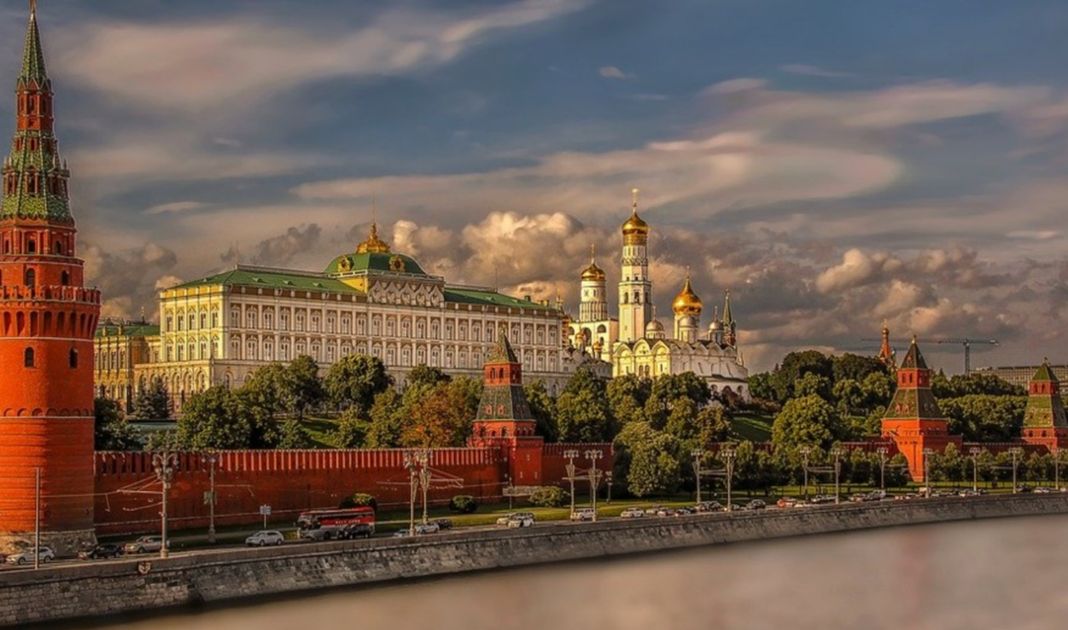Russians on the revision of the Piłsudski-Giedroyc doctrine, or the renewed Polish imperialism

(pixabay.com)
The importance of what those experts have to say is related to Regnum Agency’s position in the Russian media and intellectual establishment. This is a political, scientific and journalistic group, which can roughly be classified as patriotic. Some would describe it as the Russian nationalist mainstream. They may not be the most influential, but are important, and, aside from being informal and less exposed by media connections they are considered opinion-forming.
Modest Kolerov, the editor-in-chief of Regnum, is banned from entering the Baltic countries. Likewise, he is not well viewed in Turkmenistan; he is similarly conflicted with Lukashenko in Belarus; even in Tatarstan, Regnum is criticised because it reports on the events taking place there supposedly only “from a ‘Great Russian’ perspective”. But all the more important is what people from this group think and say about Poland, because it is their views and proposals that have a chance to influence the Kremlin’s policy much more than Alexei Navalny.
A second compelling reason is that this group has really a Polish aganda, mainly thanks to Stanislav Stremidlovskiy, who has a good command of Polish, a rare phenomenon in Russia.
For those gathered in the environment of the Valdai Discussion Club or the Russian International Affairs Council who discuss Russia’s “grand strategy”, Poland has been until now a marginal topic. Most often noticed only in relation to information about the American military presence on NATO’s Eastern Flank.
Interestingly in the recent weeks, there has been some increase in interest in Russian pro-Kremlin political circles about Poland. This is not only what Regnum writes, or its experts debate, but also an appeal by Sergey Markov addressed directly to the Polish elite, in which he talks about the need for dialogue.
This is evidenced by one of the recent speeches of the spokeswoman of the Russian Ministry of Foreign Affairs, Maria Zakharova, who said that Russia will not stand by idly and watch how the Three Seas Idea materialises.
Russians apparently sing their old song that the increase of Poland’s economic and military power coupled with growing realization by the Polish elites about the need to pursue Poland’s interests without heeding Brussels or Berlin the “Polish imperial idea” is back in the making. And to them this will pose a fundamental challenge for Moscow in the coming years.
During a round table organised at the end of February by Regnum, the changes in Polish politics were discussed. Modest Kolerov, editor-in-chief of Regnum, is of the opinion that the complexity of Russia’s relations with Poland is due to the fact that in Poland, policy towards Russia is historically not only an element of meta-political consensus and even centuries-old tradition, but was also – and after years of interruption is again becoming – a tool to achieve political goals in neighbouring countries.
In this sense, references to the Polish tradition of fighting for freedom and independence, are, according to Kolerov, nothing but a hidden form of Polish imperialism, for obvious reasons oriented towards the East. This is not a new thesis – similar voices could be heard in Russia in the nineteenth century, especially in pro-state circles, but it seems interesting to return, especially now, to this line of argument. All the more so because Kolerov is clearly of the opinion that in the clash of historical narratives – the Polish narrative versus the Kremlin, or let’s risk calling it the Russian narrative – the advantage is on Warsaw’s side today.
Moscow fights against our story about history as represented in a “partisan way,” and is thus ineffective, because it is impossible to counteract the historical narrative of a large and strong country like Poland, whose elites agree on the fundamentals of their own narrative, and thus speak with one voice.
But this is not about history, but about the rivalry of empires, because in Kolerov’s view, Poland was historically a Central European empire that successfully – and for hundreds of years – clashed with the Russian empire.
Now, basically, regardless of the changing costumes, we are renewing this old dispute – the clash of empires. The clash will take place in the buffer states separating Poland and Russia. The goal is domination.
“Polish imperialism,” argues Kolerov, “armed with a tool of historical policy and the flexible doctrine of Piłsudski-Giedroyc, according to which Poland does not have to incorporate border areas, but it is enough that it will control them and make them protectorates, is serious for Russia as an opponent against whom we have no answer.”
Interestingly, according to the editor-in-chief of Regnum, stopping this Polish imperialism can only take place in Ukraine and Belarus, but this must mean a revision of Russian policy towards these countries. However, according to Kolerov, Russia is not prepared for such thoughtful and effective action. Kolerov’s second claim is as follows – the foundation of Polish historical policy is essentially anti-Russian.”
As for the contemporary Polish imperial idea, Kolerov is of the opinion – citing unofficial talks with representatives of the Polish elite – that Warsaw thinks that Russia, trying to regain influence in Ukraine, will finally get bogged down there. As a result, it will bleed out politically and economically. Poland is not ready to talk about “partition” or a division of influence with Russia in Ukraine and Belarus. For the simple reason that Poland believes that long term both countries will be closer to Poland than to Russia.
In his opinion, modern Polish imperialism, the renewed idea of Piłsudski and Giedroyc, consists in using the social dynamics of buffer states in their own economic interests (employees, education, economic unions) and imposing ideological, mental control over local elites, who will look at the regional order and the role of Russia through Polish glasses. According to Kolerov, Russia is not prepared for this kind of Warsaw policy, either. But what is interesting is that he has a vision of Polish-Russian dialogue, and even possible agreements. Questioning the mythology widespread in modern Russia, he is of the opinion that the Polish experience, their interpretation of history (the imperial view) and their psychology are paradoxically closer to Russia than Lukashenko’s collective-labor nationalism or the mythologised self-awareness of Ukraine. In this approach, Poland appears, like Germany, as an opponent in serious competition on the one hand, and a potential negotiating partner on the other. That is worth noting because in the Russian narrative so far Poland seemed to be an insignificant country, vassalized by Americans. This perception is just beginning to change. And, as he says, “we have something to talk about with them (Poles), beyond the limits of historical traumatic experiences.”
Alexander Fadeyev, a professor at the Institute of CIS countries (and this is an institution with a clearly nationalist profile), participating in the discussion, even speaks of the “Polish Strategy for Indirect Actions” in the East. Its goal is to politically dominate the eastern territories, but, as he notes, Poland’s ambitions are not limited to the areas historically included in the old Polish-Lithuanian Commonwealth, but are wider, because they include even the present-day Crimea and the Kaliningrad District. A prerequisite for this kind of approach to appear in Warsaw is to acquire a strong external patron. Today, in the opinion of Fadeyev, the United States is picking up this role and Poland is using this American surge of interest in the region, giving it its anti-Russian flair. As far as the policy towards Belarus is concerned, in his opinion a flexible option will be adopted, which consists in building special relations.
Other participants in the discussion, such as Dmitry Ofitserov-Belsky or Stanislav Stremidlovskiy, drew attention to two issues. First of all, that Poland wants to make an advantage of its border location (in the limitrophes), imposing its own interpretations on Russian policy to the collective West. Secondly, they were of the opinion, which Stremidlovskiy stated directly, that in fact Poland does not pursue policy understood as the rational realisation of important goals, but rather it uses instinct, deeply rooted and widespread, regardless of political orientation, belief in the hostility and contradiction of Polish and Russian interests, and also about the need for “buffer states” that will separate Polish and Russian state organisms.
Stremidlovskiy, appeared at the same time, a little bit like the early Pan-Slavists like [Mikhail] Pogodin or Slavophiles as a supporter of a Polish-Russian partner state and Russian guarantees of nuclear security for Poland. In an article published shortly after this discussion, he also proposes that Russia – reconciling itself to the seemingly inevitable in the long run, i.e. the gradual democratisation of Belarus – set itself the main goal of counteracting a situation in which this level of integration transcends into fear of Russia, or more broadly understood anti-Russianness.
This all proves that Russia (despite using various political assets and leverages after 2008) is feeling insecure as to its influence in the buffer countries separating Poland from Russia. In this sense, it is a hint for them and for us, of what could happen if Poland replaced an instinct-based policy with a thoughtful strategy in the East.
Autor
Marek Budzisz
Historian, journalist specializing in Russian and Post-Soviet East. Recently he published (in Polish) "The End of the Russian America. The Thoughts on why Russia Sold Alaska”.






Trwa ładowanie...